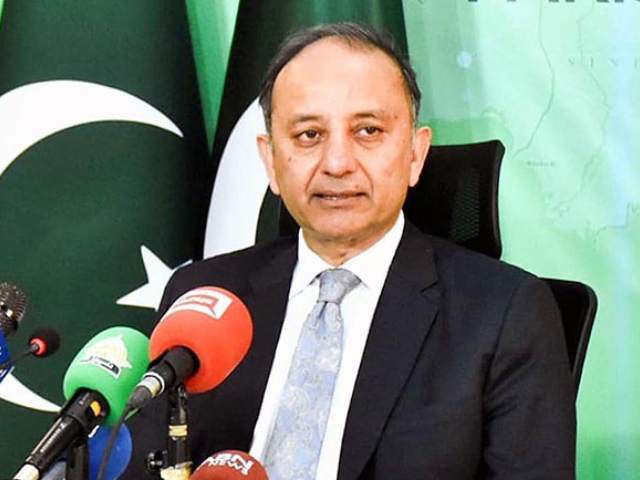Pakistan Drives Global Fair Green Funding Initiative

Pakistan's Leadership in Advocating for Fair Access to Green Resources
Pakistan has emerged as a strong voice in the global conversation on fair access to green financing and technology for developing nations. This stance was clearly articulated during a high-level meeting held on the sidelines of the fifth session of the Intergovernmental Negotiating Committee on Plastic Pollution (INC-5.2) in Geneva. The event, chaired by Federal Climate Minister Dr. Musadik Malik, brought together delegates from Bangladesh, Egypt, Malaysia, Sudan, and Tajikistan. The discussions centered on ensuring that the upcoming Global Plastics Treaty promotes equitable treatment for all countries, with particular attention to those most affected by plastic pollution.
Addressing the Imbalance in Green Financing
Dr. Malik strongly criticized the current distribution of green financing, highlighting the stark disparity between developed and developing nations. He pointed out that wealthy countries, which are responsible for the highest levels of plastic consumption, receive the largest share of climate funds. Meanwhile, poorer countries bear the brunt of environmental degradation and plastic waste. According to him, this imbalance must be rectified through fair funding mechanisms, improved access to technology, and enhanced capacity-building efforts.
The minister emphasized that climate change and pollution have exacerbated existing challenges for countries already struggling with poverty and inadequate infrastructure. He stressed the need for practical solutions rather than empty promises. For Malik, equal partnerships and shared responsibility are essential for achieving meaningful global progress. He argued that the current system leaves the most vulnerable populations behind while rewarding the largest polluters.
Call for Strong Enforcement Mechanisms
Beyond funding concerns, the Pakistani delegation also urged the inclusion of robust enforcement and support mechanisms in the treaty. They called for a clear framework that facilitates technology transfer, training, and knowledge-sharing. These tools, according to Malik, are crucial for developing nations to transition toward cleaner, greener economies. He underscored the importance of collective action and long-term international cooperation in addressing the global challenge of plastic pollution.
Commitment to a Just and Inclusive Treaty
As negotiations continue, Pakistan remains committed to maintaining its leadership role in shaping a more just and inclusive treaty. Dr. Malik reiterated that countries like Pakistan are not seeking favors but are demanding fairness. He concluded by urging developed nations to recognize the shared threat posed by climate change and plastic pollution and to take decisive action before it is too late.
Key Points from the Meeting
- Equitable Funding: Developing nations should have fair access to climate funds.
- Technology Transfer: A clear mechanism for sharing technology and knowledge is essential.
- Capacity Building: Support for developing countries to enhance their ability to manage plastic pollution.
- Enforcement Mechanisms: The treaty must include strong measures to ensure compliance and accountability.
- Collective Action: International cooperation is vital for effective global solutions.
By advocating for these principles, Pakistan is playing a critical role in ensuring that the Global Plastics Treaty reflects the needs and rights of all nations, particularly those most affected by environmental challenges.

Comments
Post a Comment